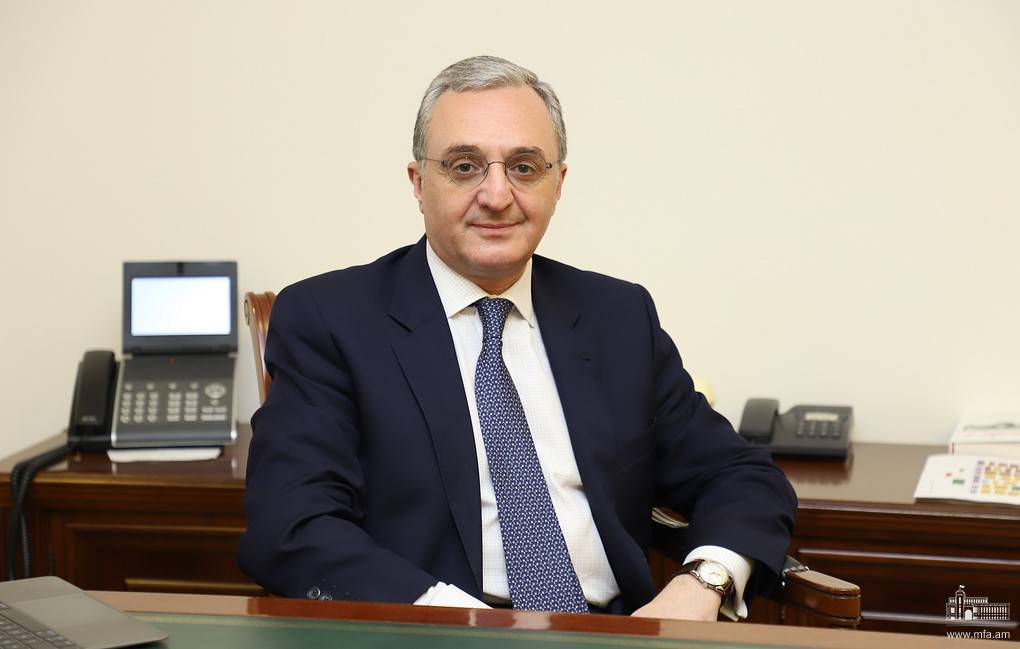Foreign Minister of Armenia Zohrab Mnatsakanyan’s address to the participants of the Armenian Genocide Memorial Event of the Program of Armenian Studies of the Hebrew University of Jerusalem
02 May, 2019On April 30, Memorial Event dedicated to the 104th anniversary of the Armenian Genocide was organized by the Program of Armenian Studies of the Hebrew University of Jerusalem, during which the address by Foreign Minister of Armenia Zohrab Mnatsakanyan was presented.
In his address the Foreign Minister of Armenia extended his thanks to the Hebrew University of Jerusalem for their consistency in organizing events dedicated to the Armenian Genocide.
“The Armenian and Jewish people share not just long history, but the deep pain of persecution and identity based organized mass murder, the heinous crime of genocide. Today our peoples have confidently demonstrated strength and resilience in rebuilding their lives, reclaiming their distinct identities, reinforcing their civilizational impact and heritage and restoring nation states.
However, the torment of the genocides continues to haunt generations of survivors, which stands proof of the compelling urge to seek justice and fight impunity for mass atrocities. Recognition and condemnation of genocides, commemoration and tribute to the dignity of their victims are powerful means of preventing atrocity crimes. We are also duty bound to join forces in building and strengthening international mechanisms for early detection of genocidal threats, early action and effective prevention.
Disturbingly, our own nations continue to face dangerous tendencies of hatred, denialism and justification of the past crimes,” the message reads.
Touching upon the statement made by the President of Turkey on 24 April, the very Day of Commemoration of the Victims of the Armenian Genocide, Minister Mnatsakanyan labeled it as insulting and deplorable. “Armenia and the Armenian people around the world resolutely denounced this statement as a conspicuous act of incitement to hatred and perpetration of atrocity crimes, a demonstration of the incapacity and failure of responsibility of the government of Turkey to protect populations from genocide and a threat to international and regional peace, security and stability.
Armenia urged the international community to strongly condemn the insult and injury to the memory and dignity of the victims of Genocide and their survivors. This call is effectively a test to the international solidarity, determination and seriousness about the commitment to prevent genocides and other atrocity crimes. The world was already once silent back in 1915.
Holocaust survivor and Nobel Prize winner, the late Elie Wiesel once remarked that “to forget the dead would be akin to killing them a second time”. Perhaps, it might have been possible to prevent the Holocaust committed under the veil of the Second World War had the Armenian Genocide committed during the First World War earned manifest international condemnation, accountability and punishment. Genocide perpetrators learn from each other. A sign in the Holocaust Memorial Museum in Washington DC with a quotation of Hitler’s notorious remark “who, after all, speaks today of the annihilation of the Armenians?”, is a stark reminder of the threats of impunity.”
“We know the deep trauma of the genocide not from textbooks, but from personal family stories. Denied justice haunts generations of genocide survivors. In our present world overwhelmed with hatred, intolerance, identity based crimes, mass atrocities and genocidal tendencies the term “never again” cannot remain shallow. As ever, the urge for the international community to act collectively and decisively in order to prevent genocides will never cease. The genocide surviving nations bear particular responsibility to lead these efforts,” the Minister’s message states.
At the end of the message Foreign minister Mnatsakanyan expressed his deep appreciation and respect to the faculty of the Armenian Studies of the Hebrew University of Jerusalem, particularly to Professor Reuven Amitai, as well as to all the students who have chosen Armenian studies as their field of expertise. “This program, implemented with the support of the Armenian Government and in cooperation with the Armenian Patriarchate of Jerusalem, has been a significant academic and educational platform for the study of the Armenian history, language, culture and civilizational heritage. I am most grateful for your direct and significant contribution to the strengthening of academic and cultural collaboration between the people of Armenia and Israel”.


